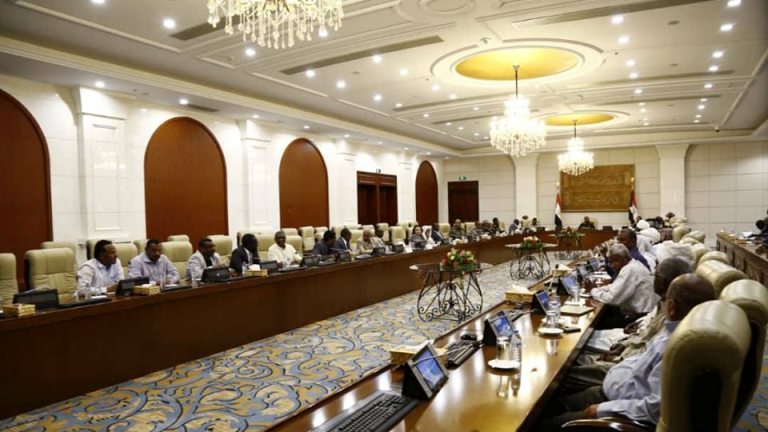Sudan ruling partners to reform state institutions
April 6, 2020 (KHARTOUM) – Sudan’s ruling partners formed a joint committee to introduce quick reforms in state institutions and set a time matrix to implement it, a year after the collapse of the former regime.
One year after the collapse of the former regime, the Sovereign Council, the government and the Forces for Freedom and Change (FFC) recently held a meeting to assess the performances of Hamdok’s government.
Regardless of the economic challenges facing the country, the FFC pointed to the very slow pace of reforms and the continued presence of the intermediary cadre of the former regime in the state institutions.
After long discussions, the meeting agreed to form a joint committee including three members of the Sovereign Council, four ministers and eight FFC members.
“A joint committee has been formed between the ruling parties to implement a series of reforms in the public institutions within an agreed time frame,” a participant in the meeting told Sudan Tribune on Monday.
According to the official who is not authorized to speak to the press, the committee will conduct reforms in the security services, in addition to implementing the agreed solutions on the economic crisis, external relations, justice, removal of the cadre of the former regime and the future of the partnership between the parties to the government.
The committee also is enabled to form sub-committees to enforce punctual reforms.
Among the urgent matter discussed in the meeting the reform of the intelligence apparatus, the transfer of the ownership of economic and industrial companies from the security and military agencies to the government, dealing with security challenges in the country, ensuring the needed support to the committee to dismantle the former regime, and retrieving the confiscated funds and deliver it to the Ministry of Finance.
Sudan’s foreign relations also have been discussed and it was agreed to establish balanced relations in the region and with the international community.
During the recent months, the Sovereign Council particularly the military component and the prime minister complained of the lack of support from the FFC. The latter in return accused Hamdok of relinquishing power to the military who are suspected of killing civilians and working with regional powers.
“The joint committee is an attempt to activate the partnership mechanisms and dissipate misunderstandings,” said the source before to add that the parties pointed to the lack of joint mechanisms during the past period after the formation of Hamdok’s cabinet.
The joint committee will also work to break the deadlock in the peace talks with the SPLM-N led by Abdel Aziz al-Hilu which refuses to engage in negotiations before to include the secular state and self-determination in the agenda of the talks.
The Transitional Military Council accepted to give up power to a civilian government four months after the ouster of the former regime.
On 23 August 2019, the signed an agreement with the FFC groups providing to establish a 39-month transitional period and to represent them in the Sovereign Council and to appoint two militaries in the government chaired by a civilian government for the defence and interior ministries.
The delay in the investigation of the bloody raid on the pro-democracy sit-it in June 2019, the military interference in Sudan foreign relations, the peace process, and the failure to curb the deteriorating economic situation are identified among the causes of the misunderstandings between Hamdok and the FFC which brought him to power.
(ST)

